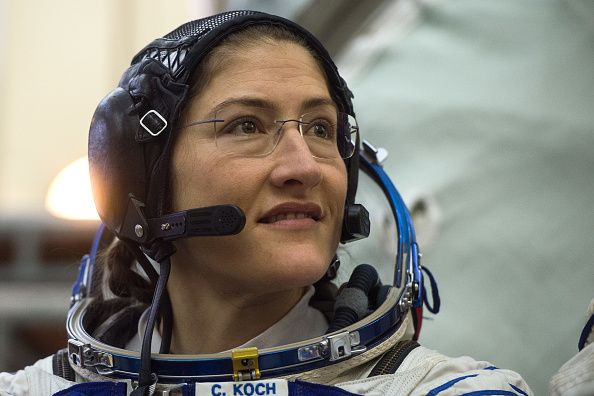NASA Confirms First All-Female Spacewalk: How To Watch Online

NASA is gearing up to conduct an all-female spacewalk on the International Space Station (ISS) this week. Details of the upcoming procedure will be discussed by the agency today through a live stream event.
In a new press release, NASA announced that its upcoming spacewalk will feature the astronauts Christina Koch and Jessica Meir. It will serve as Koch fourth spacewalk on the ISS while it will be Meir’s first.
Koch joined the ISS in March as part of the station’s Expedition 59 crew. Due to reassignment schedules, Koch’s stay on the ISS has been extended until February 2020, which means the astronaut will be spending over 330 days in spays. Once Koch completes her assignment, she will be the first woman to have the longest single continuous stay in space.
Meir, on the other hand, joined the ISS in September during its Expedition 61 mission. Interestingly, Meir holds dual citizenship in the U.S. and Sweden. This means that her stay on the ISS makes her the first Swedish woman in space.
NASA is still ironing out the details of Koch and Meir’s spacewalk but the two are expected to venture out of the ISS on either Oct. 17 or Oct. 18 at 7:50 am EDT. Live coverage of the spacewalk will begin at 6:30 am EDT and will be streamed through the NASA Live website.
Before proceeding with the spacewalk, NASA will host a media teleconference later today at 4:30 PM EDT. Like the actual spacewalk, the teleconference can be viewed through NASA Live. According to the agency, this event will serve as an avenue for members of the press to ask questions regarding the details of the upcoming spacewalk.
As noted by NASA, the objective of the upcoming all-female spacewalk to improve the ISS’ power systems. It may also have something to do with a faulty battery charge/discharge unit (BCDU) that failed to activate last week after the installation of new lithium-ion batteries.
Despite the issue, NASA noted that the faulty equipment does not affect the operations of the station.
“The BCDU failure has not impacted station operations, safety of the crew, or the ongoing experiments aboard the orbiting laboratory, many in preparation for future human missions to the Moon and Mars,” the agency said in a statement.
© Copyright IBTimes 2025. All rights reserved.





















